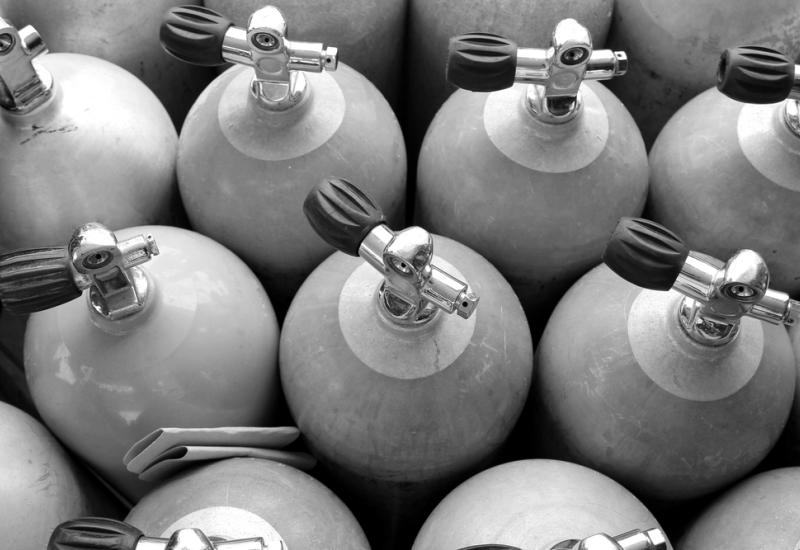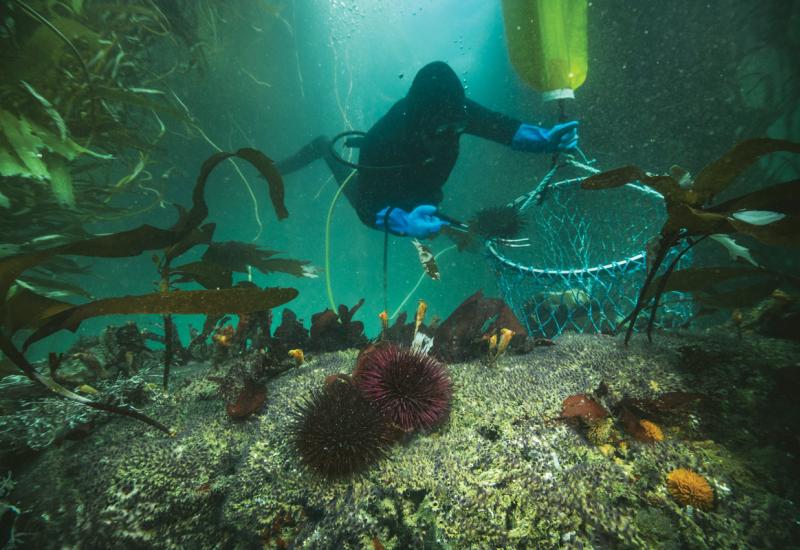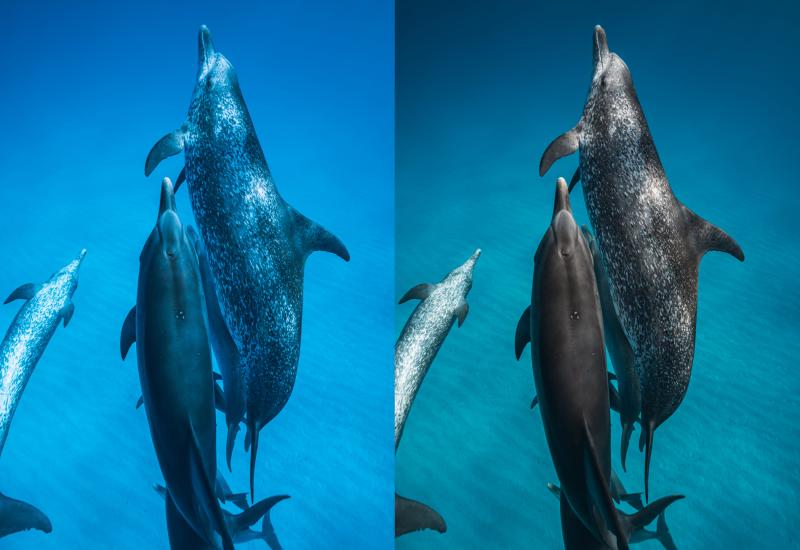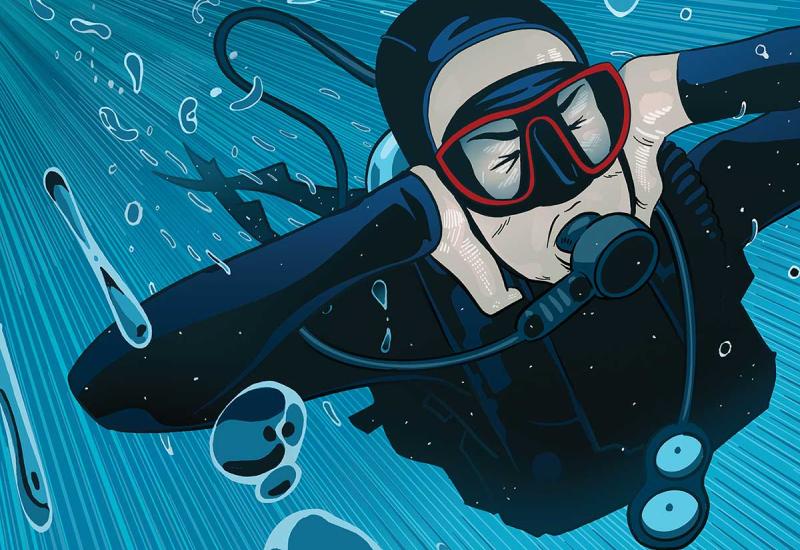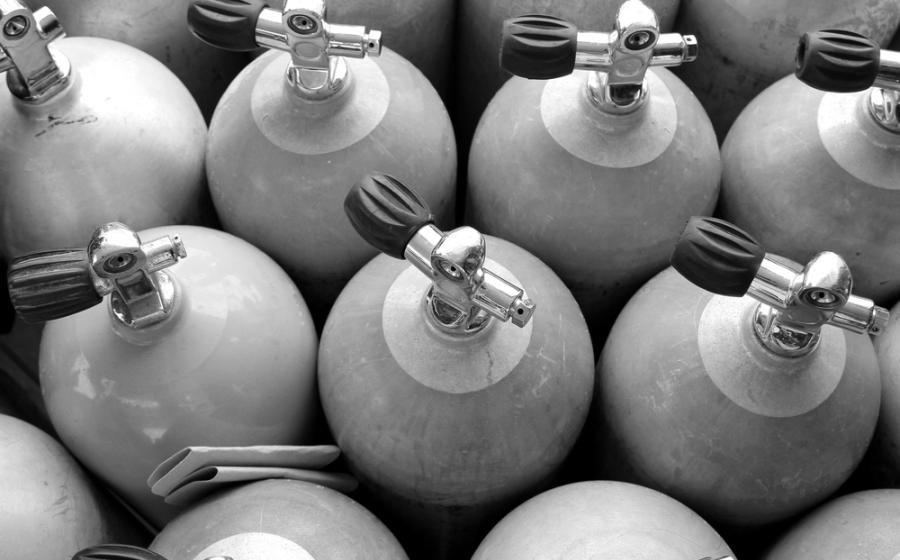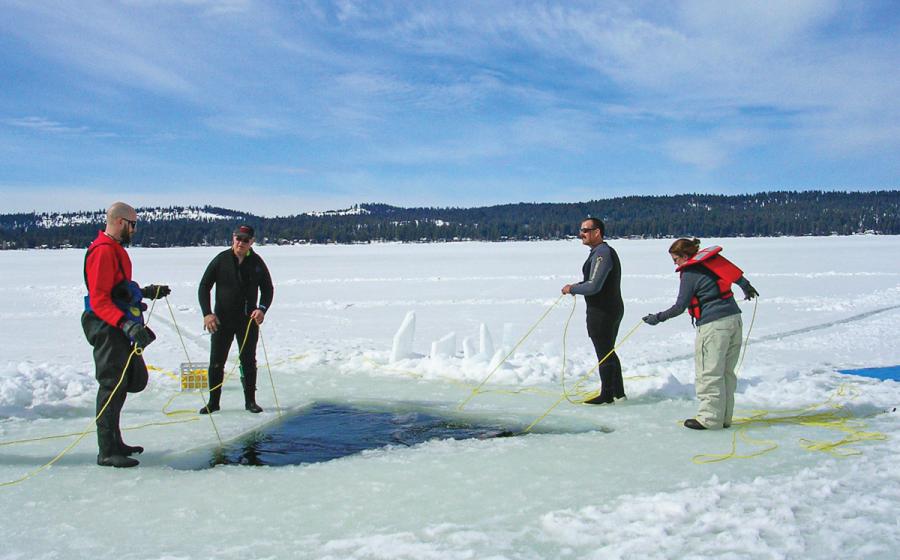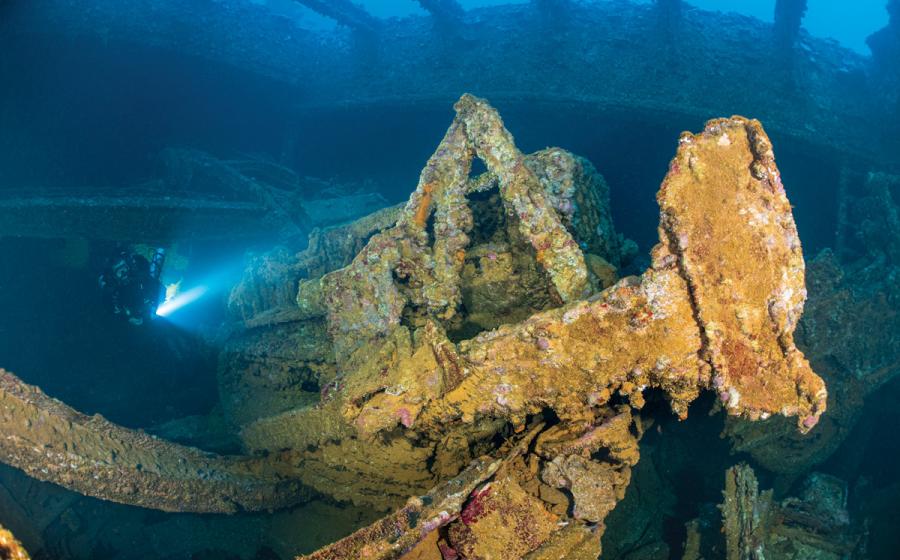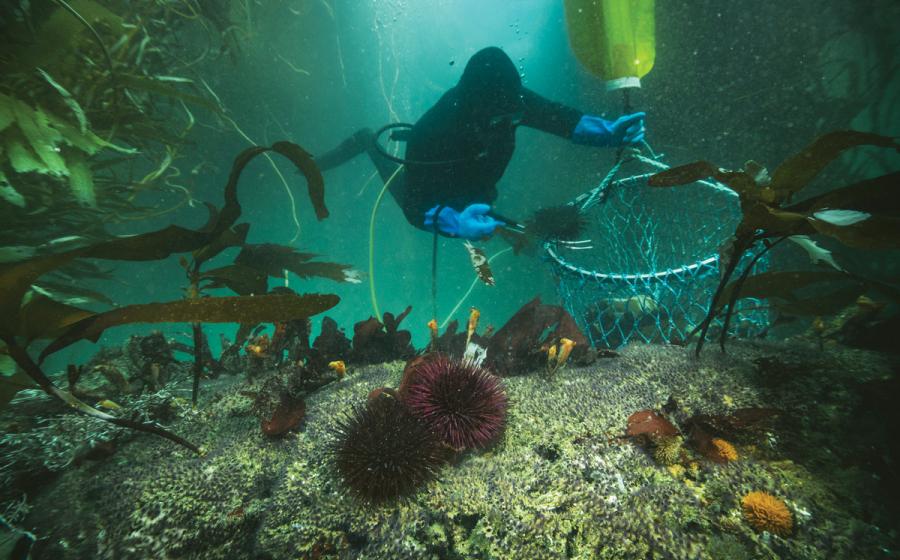Don't Force It | Lesson for Life
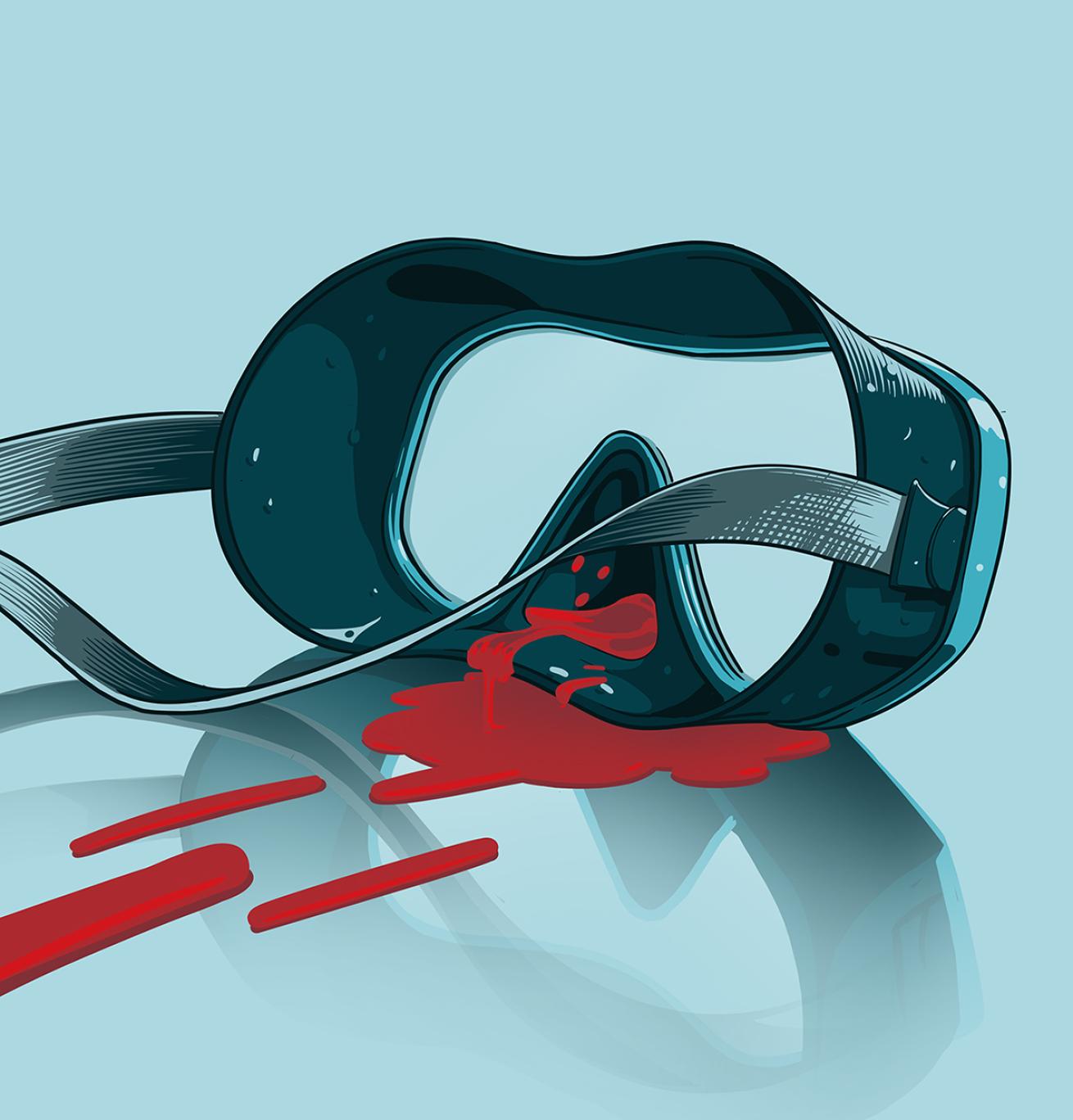
Steven P. HughesBlood in your mask after a dive is concerning, but not necessarily dangerous.
Tina was on day three of a four-day dive trip. Conditions were great throughout the trip, with bright sun and warm water. On the first two days, she made three dives each—two from a boat in the morning and then a third shore dive each afternoon. As she finished up her second dive on the third day, she thought about skipping the shore dive that afternoon and taking a shopping excursion to buy some presents for friends at home.
When she got to the surface and pulled off her mask, she was shocked to see the nose pocket full of blood. She immediately grew concerned.
The Diver
Tina, 40, had been diving for five years. Every year she made two trips to the ocean, making between eight and 10 dives each trip. She had an Advanced Open Water Diver cert and was nearing 100 lifetime dives.
The Accident
As Tina descended for that dive, she noticed it was a little harder than usual to equalize her ears. She blew extra hard to equalize and had to pause twice to let her ears “catch up” with her descent.
She was shocked at the amount of blood in her mask when she reached the surface. She immediately consulted a diving physician when she reached shore, worried that something was seriously wrong with her sinuses or ears.
Tina told the doctor she had been feeling a little stuffy that morning when she woke up but had written it off to the air conditioning unit in her hotel room. She didn’t have any significant medical history with her sinuses.
Analysis
Blood in your dive mask at the end of a dive is most likely not a life-threatening situation, but it is something just about every diver will have to deal with at one time or another over their diving career.
Every diver learns basic ear equalization techniques during their initial dive training. Some divers are lucky and have ears that equalize easily. Other divers have to work at it.
The ears and the sinuses are sensitive to pressure changes and must be equalized to the water pressure every few feet of descent. Most divers learn to pinch their nose and blow gently until they feel their ears “pop.” Many divers learn to pre-equalize their ears, overinflating them before they begin to submerge to get ahead of the pressure.
Problems begin when there is even the slightest blockage in the Eustachian tube, often described as a soda straw leading from your mouth to your middle ears. Any kink or restriction in that straw makes middle-ear equalization harder. To overcome that problem, divers sometimes pinch their nose tighter and blow harder, even though they are taught not to do this. And that’s where the problems begin. In Tina’s case, it caused a blood vessel in her sinuses to rupture. The technical term for this is epistaxis, but in other words, she gave herself a nosebleed.
Nosebleeds are common for both freedivers and scuba divers. The linings of the sinuses are filled with capillaries and blood vessels. When one of them breaks, or leaks, it releases what appears to be a large amount of blood. This can look even more troubling when it collects in the nose pocket of your mask and mixes with a little water. A single short-term nosebleed generally isn’t something to be concerned about, as long as the bleeding stops on its own. Bleeding that does not immediate stop, or that occurs repeatedly, requires medical evaluation.
Often divers have a full feeling in their ears after a diving nosebleed, but that is likely related to the underlying cause of difficulty equalizing the ears. When you don’t equalize your ears promptly, the mucosal tissue in your sinuses can actually leak blood into your middle ears to equalize the pressure itself. This blood stays in the middle ear though, and doesn’t drain from the mouth or nose. That can cause its own set of problems, including middle ear infections.
Equalizing
If you have a temporary blockage from a cold, or a more serious issue like an obstruction of some sort, you should wait until the condition clears or discuss the situation with your doctor before returning to diving.
But if you have what many divers refer to as “slow ears,” there are several techniques you can use to help your ears equalize faster. Simply pinching and blowing harder is not a solution, and can cause serious ear injuries. This is why you’re taught to equalize gently. As mentioned earlier, you can gently equalize your ears before you begin your descent, giving them a head start. Other techniques include jutting your jaw forward or moving it from side to side as you equalize. If one ear is slower than the other, stretch your neck while you equalize, pointing the slow ear upward and keeping your head above your feet on descent. This helps straighten your Eustachian tube.
With some practice, these add-on techniques will become second nature. If they do not, and you still struggle with ear equalization or have repeated nosebleeds when you dive, you should consult a physician, preferably one with experience dealing with scuba and freediving.
A side note on sinus medications: Some divers regularly take them when diving. This is risky. If you take a sinus medication for more than three or four days in a row, it can cause significant rebound effects once the decongestant wears off. Known as rebound rhinitis, your symptoms may actually become worse in a few hours when the medication wears off, which can be especially problematic if it wears off while you are underwater and still have to surface with a blockage. It’s best not to use medications to dive.

